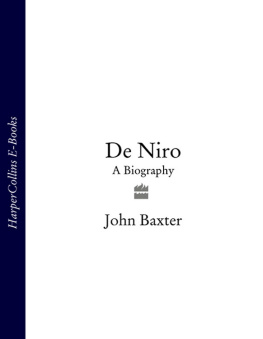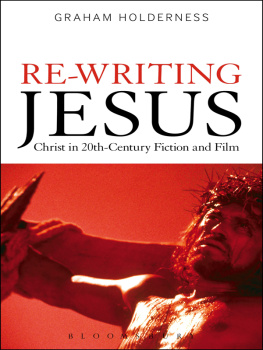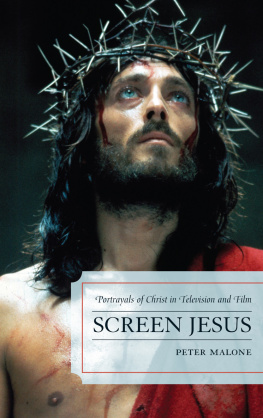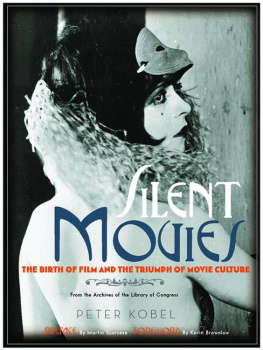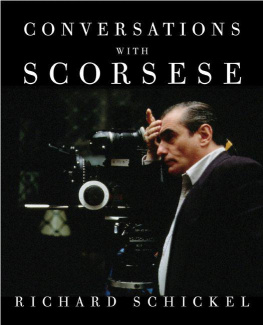Martin Scorsese: Interviews
Revised and Updated
Conversations with Filmmakers Series Gerald Peary, General Editor
Martin Scorsese
INTERVIEWS
Revised and Updated
Edited by Robert Ribera

www.upress.state.ms.us
The University Press of Mississippi is a member of the Association of American University Presses.
Copyright 2017 by University Press of Mississippi
All rights reserved
Manufactured in the United States of America
First printing 2017
Library of Congress Cataloging-in-Publication Data
Names: Scorsese, Martin author. | Ribera, Robert editor.
Title: Martin Scorsese : interviews / edited by Robert Ribera.
Description: Revised and updated [edition]. | Jackson : University Press of Mississippi, 2017. | Series: Conversations with filmmakers series | Includes filmography and index.
Identifiers: LCCN 2016039514 (print) | LCCN 2016051720 (ebook) | ISBN 9781496809230 (hardcover : alk. paper) | ISBN 9781496809476 (pbk. : alk. paper) | ISBN 9781496809247 (epub single) | ISBN 9781496809254 (epub institutional) | ISBN 9781496809261 (pdf single) | ISBN 9781496809278 (pdf institutional)
Subjects: LCSH: Scorsese, MartinInterviews. | Motion picture producers and directorsUnited StatesInterviews.
Classification: LCC n-us (print) | LCC PN1998.3.S39 (ebook) | DDC 791.4302/33092 [B] dc23
LC record available at https://lccn.loc.gov/2016039514
British Library Cataloging-in-Publication Data available
Contents
Introduction
In the opening pages of his novel The Last Temptation of Christ, the basis of Martin Scorseses 1988 film, Nikos Kazantzakis writes that the principal anguish and the source of all my joys and sorrows from my youth onward has been the incessant, merciless battle between the spirit and the flesh. It is a heartfelt description by a man who sought a closer relationship to God while acknowledging the struggle between faith, art, and the temptations of living in the modern world. Kazantzakiss description of his conflicted life can shine a light on Martin Scorsese and his brilliant, intense films, which, for five decades, have courageously explored the passions that bind us together but, more often, destroy us. In Mean Streets, GoodFellas, and The Departed, it is the lure of violence and crime. In the recent The Wolf of Wall Street, the lure of greed.
Scorsese has frequently returned to his native New Yorkso vibrant, ebullient, yet so depravedas a metaphor for the world at large. The darkness is already embedded in the strictures of nineteenth century Manhattan high society in The Age of Innocence. In the crime-ridden landscape of New York of the 1970s, Scorsese might relate to Travis Bickles wish in Taxi Driver that some day a real rain will come and wash all the scum off the streets. But living in the corrosive urban jungle only partly explains Bickles pathology, and Scorsese does not always need the streets of New York to explore his themes. Much of Bickles depravity is internal, and many of Scorseses movies delve into the darkness of the souls of his protagonists and antagonists, reaching rock bottom with the stalker insanities of Rupert Pupkin in The King of Comedy, the obsessions of Howard Hughes in The Aviator, or the sadistic violence of Max Cady in Cape Fear.
Fortunately, Scorsese also provides us (occasionally) with characters to root for. Countess Ellen Olenska in The Age of Innocence and Alice Hyatt in Alice Doesnt Live Here Anymore struggling for their liberation. Charlie in Mean Streets struggling with his faith and his ambition. In Kundun, the Dalai Lama fighting Chinese oppression. Scorsese is most positive in his documentaries, with his affectionate portraits of, among others, Bob Dylan, George Harrison, Elia Kazan, and his own Italian American parents.
Scorseses love of, and reliance on, cinema began early, in New Yorks Little Italy. With asthma restricting his ability to be a very active child, Marty spent a fair amount of time in the 1950s at the movie theater or in front of a television set. In front of those flickering screens, he fell in love with worlds that separated him from the streets. Outside, he was confronted with the violence and crime of his New York City neighborhood. In a telling exchange with Paul Schrader, Scorsese talks about his impressions of cinema as a little boy. The first image I remember seeing in a movie theatre, he recalls, was a trailer in Trucolor of Roy Rogers and his horse jumping over a log. My father said, Do you know what Trigger is? I said, Thats trigger. (Scorsese pulls the trigger of an imaginary gun.) I was about three or four years old. My father said, No, thats the name of the horse. And there was this beautiful horse and this guy with fringe jumping and flying in the air like an angel. Ever since I always wanted to be a cowboy and never was.
Scorsese was never a priest either, though he wanted to be that as well. In line with the concerns of many characters in his films, he attributes his call to the priesthood with a deep desire to belong. I needed to be accepted somewhere, he tells Peter Occhiogrosso in a lengthy discussion of his beliefs, acknowledging that being a good Catholic boy and living a Christian life proved difficult. How do you do that in this world? he wondered, and imagined answers behind the vestments. I figured that maybe wearing the cloth you might be able to find a better way to do that. While the priesthood did not work out, he was able to translate those passions, those questions, into a career in filmmaking. In line with other Catholic directors such as Robert Bresson and Alfred Hitchcock, Scorsese has entered a lifelong conversation about religion on the screen. Catholicism, if not always orthodox, runs deep in his life and films.
The passion of filmmaking was another form of identity for Scorsese, who attended NYU as a film student in the 1960s and, while working on his first feature, Whos That Knocking at My Door, stayed on to teach. It was a time that young filmmakers were anxious to translate their experiences to film, to be political and personal. In one of his earliest interviews, with Doris Freedman on WNYC radio in 1967, he called filmmaking a kind of therapy.
After working as an editor on Woodstock and making his feature, Boxcar Bertha with Roger Corman, who taught him how to make a movie in twenty-one days, Scorsese had his breakout success. It was Mean Streets, which arrived in 1973. The opening lines, You dont make up for your sins in church. You do it in the streets, reflect Scorseses attempts to bridge the gap between the lives he led growing up. If theres any religious theme or concept in my films, he says later, I guess the main one would be the concept in Mean Streets of how to live ones life. It is in many ways still his most personal work. He would worry forever after about the compromises of working within the Hollywood system, the too-expensive production costs, and his ability to keep making personal films. This balancing act continues today, as he continues to work within the system, making personal films on a grand Hollywood scale. As he tells Amy Taubin, I use myself as a measuring rod, try to stay as honest as I can.
It would be reductive to claim that Scorsese concerned himself exclusively with one theme during his long career. However, he embraces the idea that there are threads that run throughout his films. There is an evolution. Ive seen it, he tells Schrader. However, you also have patternsand you have to deal with them. With Scorsese what is ubiquitous are lives tinged with crime and violence. His morally complicated charactersincluding many criminals and murderersform the bedrock of Scorseses work, and he argues that they help us understand the frailty of being human. At the heart of these characters is a quest for identity; that the journey takes them to the temptations of violence, lust, and greed, is not an act of condoning on Scorseses part. Jordan Belforts greed in
Next page

